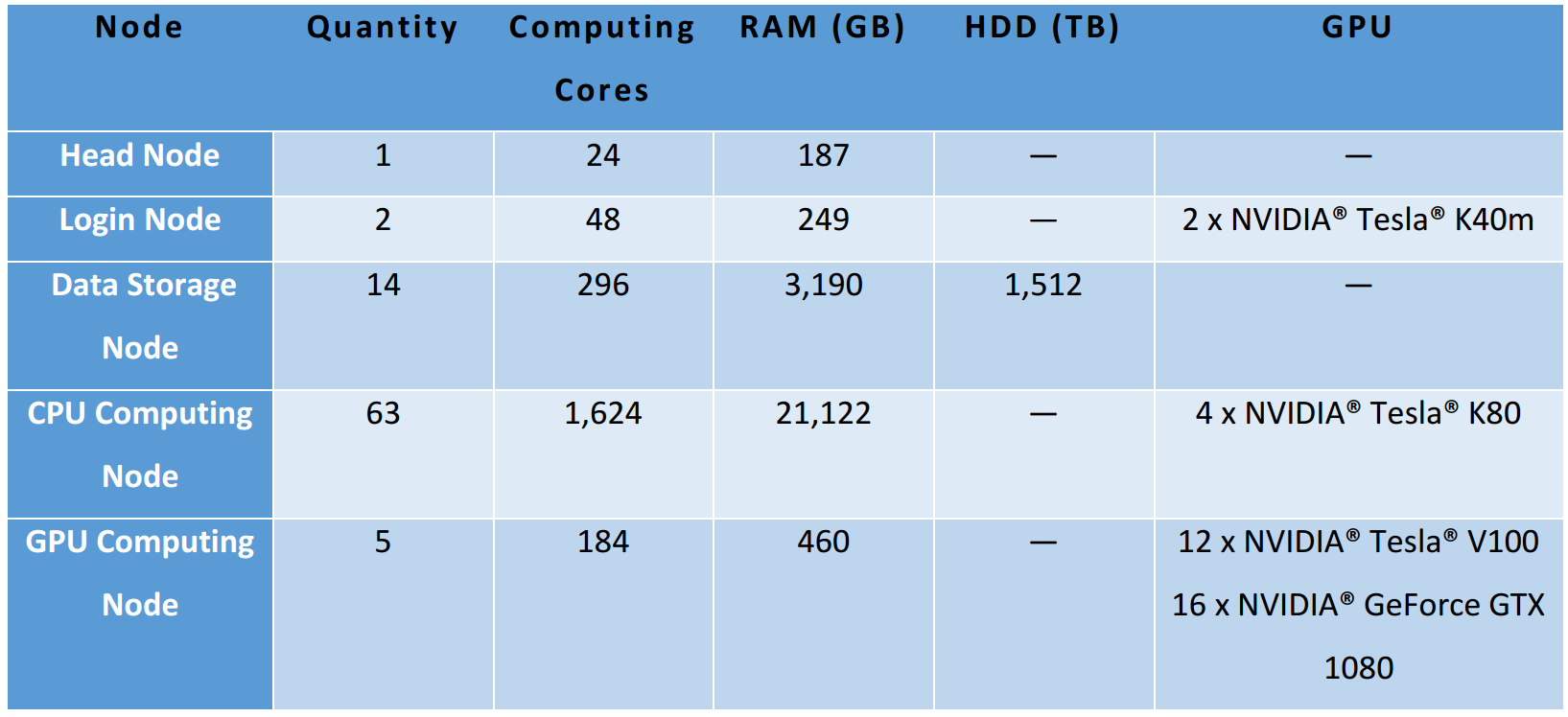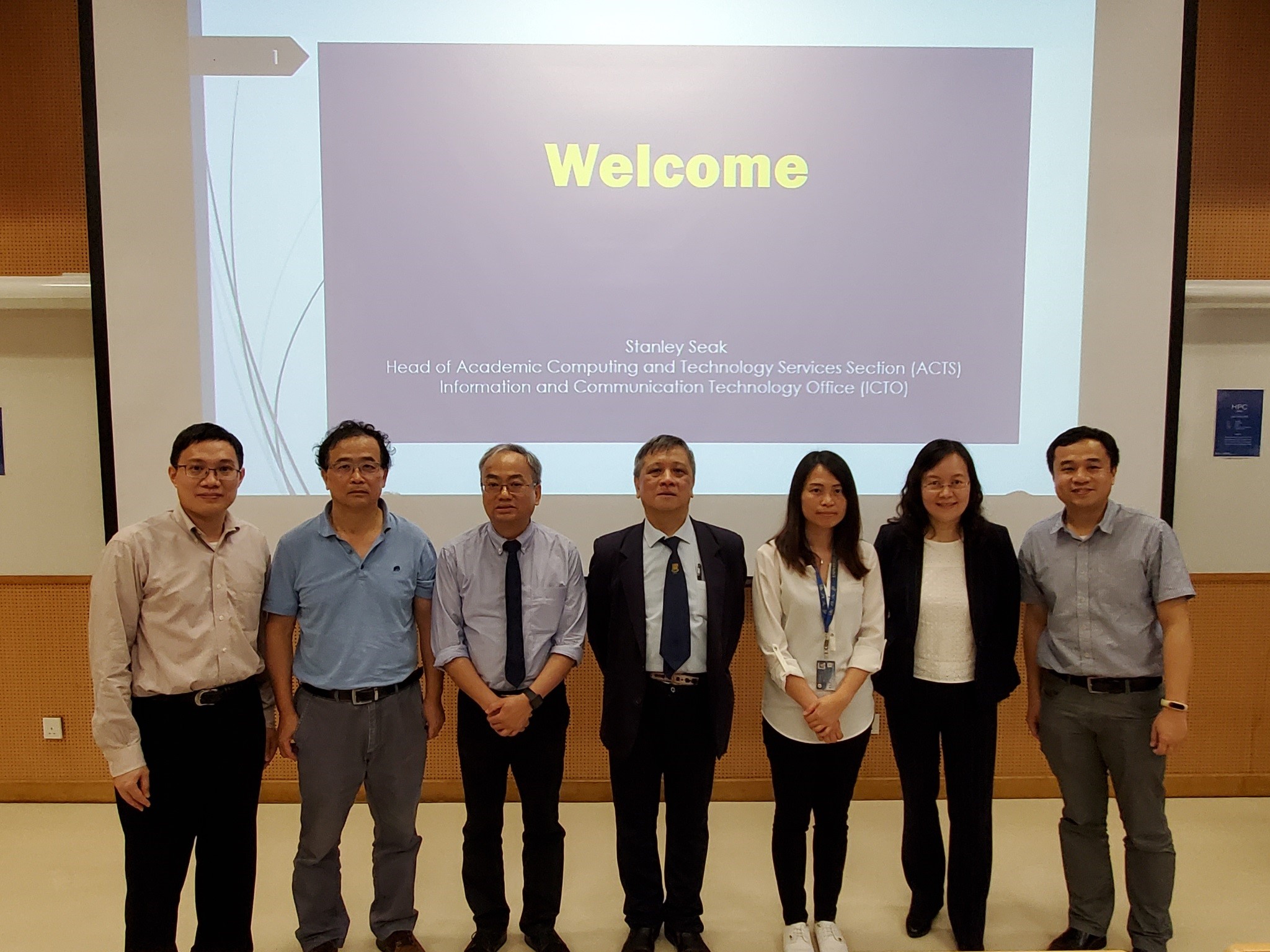The purpose of HPCC (High Performance Computing Cluster) is to provide high performance computing resources that an individual computer cannot provide. It allows users to run the computational jobs on those connected computers at the same time (known as parallel computing) to achieve higher processing performance.
Our third generation HPCC (Coral) was launched in April, it provides more than 2,000 computing cores, 85 servers and 34 graphics processing units (GPU). It also provides a large memory computing server with 3TB RAM. The overall computing performance is increased by 12.5 times compared with the last generation. It occupies a leading position of the HPCC within the higher education institutes in Macau. The HPCC Coral provides a better computing capability to the various research teams, and provides support to various research areas, including Bio-Medical, Analysis of Chinese Medicine, Precision Medicine, Medical Imaging, Materials Sciences, Engineering Design, Simulation Analysis, Deep Learning, etc.
The current production HPCC – “Coral” is using Rocks 7 (CentOS 7) open-source Linux cluster distribution system. All nodes are inter-connected by InfiniBand 4x QDR interface, providing high-speed optical fiber transmission bandwidth at 40Gb/s.

To introduce and share more information with the users about the new Coral, ICTO organised a seminar – “High Performance Computing User Forum 2019” on 11 April 2019.
Prof Tam Kam Weng, chair of the Information and Education Technology Committee at UM; Mr Kwan Wing Keung, assistant IT director at the University of Hong Kong; Prof Wang San Ming from the Faculty of Health Sciences at UM; and Prof Su Yan and Dr Siu Weng In from the Faculty of Science and Technology at UM were invited as guest speakers.
Prof. Tam believed that the establishment of a new generation of High Performance Computing Cluster (HPCC) was very meaningful and it occupies a leading position of the HPCC within the higher education institutes in Macau. It could effectively support the research projects and assist the development of scientific research in University of Macau.
Mr. Kwan introduced the development of HPCC in the University of Hong Kong over the years, and shared how to effectively support campus research achieve outstanding results.
In the seminar, Prof Wang, Prof Su and Dr Siu gave keynote speeches, titled ‘GT and IT: Two Melons Growing on the Same Vine’, ‘High Performance Simulations by the Non-dimensional Lattice Boltzmann Method with a Controllable Structure Generation Scheme and Applications’, and ‘Exploring Biological Processes by Molecular Dynamics Simulations’, respectively. These topics can be carried out with the support of HPCC. The contents were academic and professional, allowing the instructor and students understand the inseparable relationship between high-level computing and high-quality research. Seminar deepened participant’s understanding of the topics.
After the meeting, the guests interacted with the participants and shared their research topics and experience in using HPCC. The seminar attracted a number of staff and students from various faculties to participate. Academically rich contents of the seminar benefited the participants.



